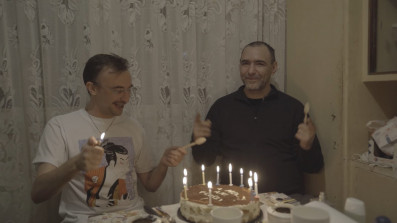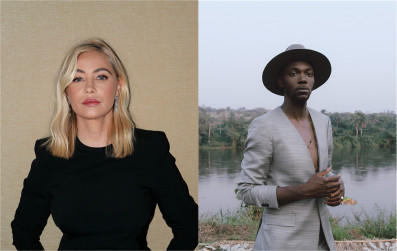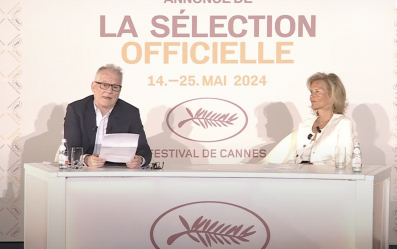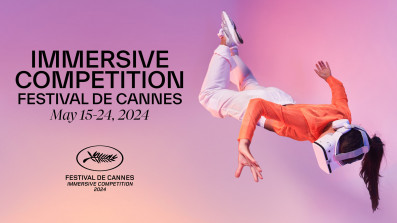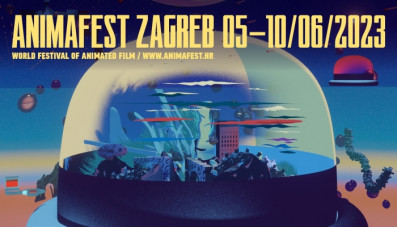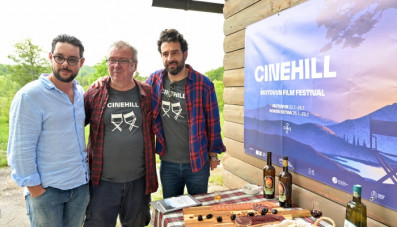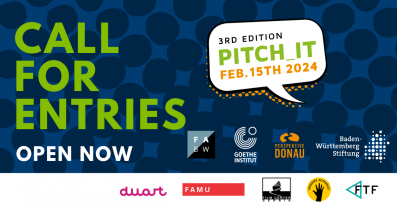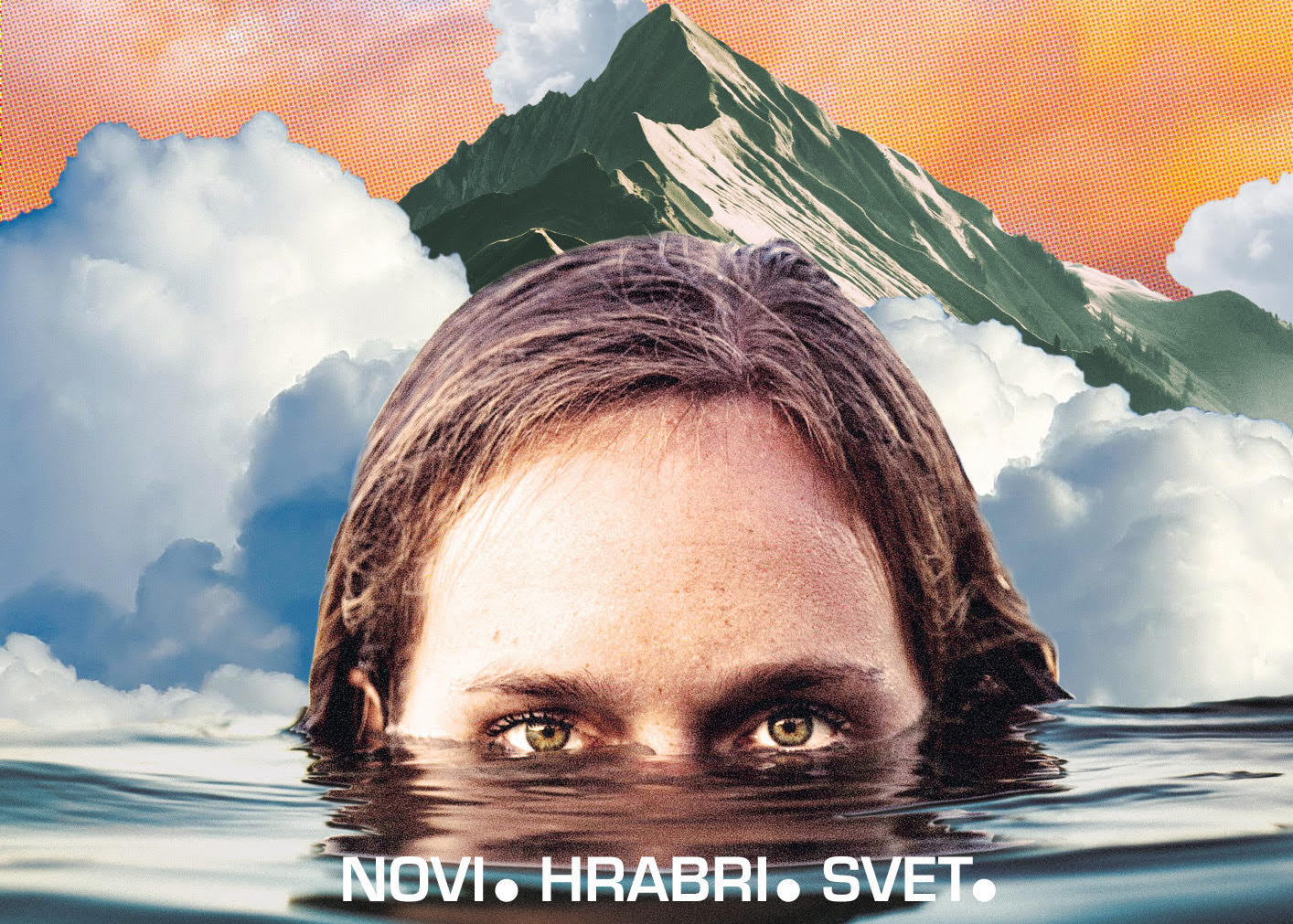
Five films to check out at 50th edition of FEST Belgrade
93 films from major festivals around the world screen in Belgrade during the 50th edition of FEST
The rich program of this year's 50th FEST (February 25 - March 5) will feature films that have won awards at prestigious film festivals. At the opening of the 50th FEST on February 25 in Kombank Hall, the film Strahinja Banović, directed by Stefan Arsenijević, will be shown. Besides this, the film awarded at Karlovy Vary Film Festival, FEST will screen 93 films so we decided to make our shortlist of titles truly worth checking out!
Here is Duart's top 5 at the 50th edition of FEST Belgrade:
„Dark Glasses“ by Dario Argento
Dark Glasses brings some of the best elements of classic horror and pulp detective stories from the past century, mixing and matching elements of films and thrash literature from mid 40's to mid 90's. Of course, the most noticeable and remarkable elements are those from Argento's youth, the grainy film (in this case not analogue as the film was made with Arri Alexa Mini), bright neonish colours, anamorphic lenses and POV shots of murder. There are also hypnotic melodies of the disco mixed with sounds of the 80s horrors done by French techno composer Arnaud Rebotini - known for soundtracks of BPM (Beats Per Minute) and Blair Witch - that just might sound and feel something Daft Punk would do (who allegedly dropped out of this project because duo's breakup). Pure 90 minutes of Giallo horror guilty pleasure!
Read our review here.
Festival screenings here.
„Annette“ by Leos Carax
Annette, at its core, is the metanarrative musical/ farce driven by the creative forces of director Carax and the British pop legends Sparks. On the pure audio and visual level, it is hard to find many complaints about it. Music, as a driving force of the film, has a genuine sound that Ron and Russell Mael are known for. When voices and performances of Driver, Cotillard or Simon Helberg - in the role of Conductor, get added to it, magic purely happens. Even without looking at the screen, one could recognise the story structure in the sounds, as well as emotions purely in voices that fill in the film. Of course, with this aspect completely covered and secured, Carax loosens up and gets a chance to do what he does best, provoke and shock, with actions and twists for his characters, as well as with bright colours and a demimonde world that doesn't want to commit to hyperreality nor down to earth view.
Read our review here.
Festival screenings here.
„Working Class Heroes“ by Miloš Pušić
Working Class Heroes is a story about a professor and a group of disenfranchised builders who have been left without money and basic rights that are still trying to fight their bosses with all the means and knowledge they have. Pušić brings a story of lost and forgotten, people who die or are tortured in a workplace and nobody knows or ever hears about them. By combining professional actors and actual workers within the engaging narrative this laters Serbian Berlinale feature film is something that should not be missed!
Read our review here.
Festival screenings here.
„The Staffroom“ by Sonja Tarokić
Faced with the limitations of the school system and surrounded by discouraged teachers, the new and enthusiastic primary school pedagogue Anamarija (Marina Redžepović) enters her personal struggle with a problematic history teacher, unaware that she is slowly becoming more and more like her classmates. At school, we were taught that if you want to destroy a society, you need to start with the education system. Judging by Tarokić's film, Croatian and South East Europan is already very ruined.
Through the Staffroom, director Tarokić exposes many (or maybe even all) of the problems of the educational system, but also society in general. Her film is one of the latest directorial works of this kind. It fits perfectly with Don't Look at My Plate, by Hana Jušić, Mater by Jure Pavlović, and the documentary One of Us, by Đuro Gavran. This new generation/ trend in Croatian film enters deep within psychoanalysis and without too many events and locations expose modern societies of Croatia and a region that is divided between traditional norms and modern trends, democracy and freedom of choice under which we underline all our dirt and actions that are not allowed.
Read our review here.
Festival screenings here.
„Riders of Justice“ by Anders Thomas Jensen
Markus goes home to his teenage daughter, Mathilde, when his wife dies in a tragic train accident. It seems like an accident until a mathematics geek, who was also a fellow passenger on the train, and his two colleagues show up. – states the official synopsis of Riders of Justice the latest feature film by Anders Thomas Jensen, the prolific Danish writer and director. The film „exists“ somewhere on a verge of a classic revenge action flick and a truly smart philosophical debate of predestination, causality, free will and coping with existence. What develops in the 2 hours of the film is a gloriously contained and well-developed film that manages to merge action-adventure, comedy and emotionally driven family drama all at once. If this was a Korean film, it wouldn't be such a big deal, we all got used to it in past several years from them, but this is a European film, to be precise Danish film and truth to be told it is one of a kind experience.
Read the full review here.
Festival screenings here.



